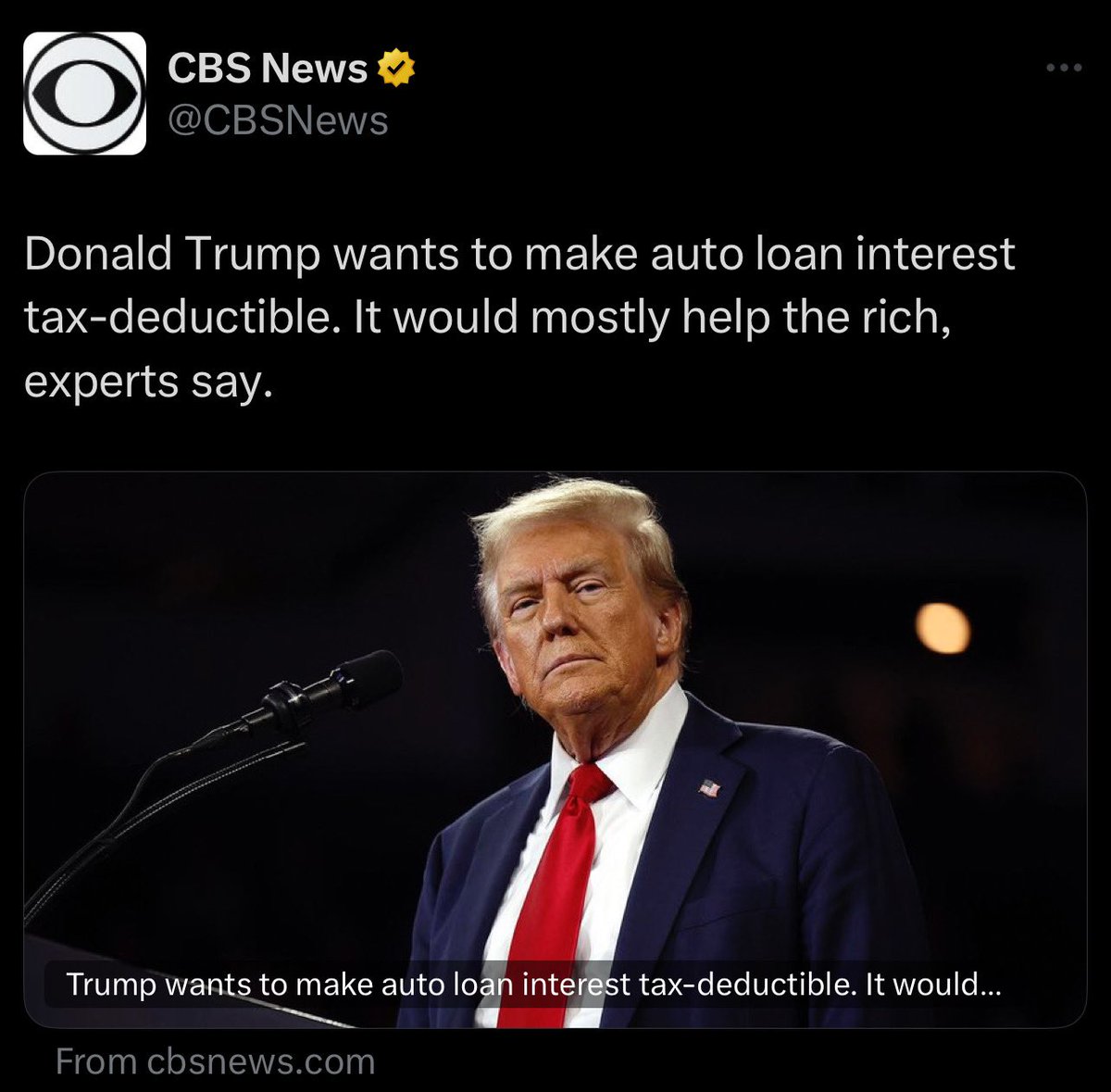Donald Trump’s proposal to make interest on car loans tax-deductible has sparked varied reactions, with CBS suggesting it predominantly benefits the wealthy. However, this policy could have broader, positive implications for the economy, particularly for middle-class car owners and the automotive industry.
Firstly, making car loan interest tax-deductible would directly benefit anyone with a car loan, not just the rich. For many middle-class families, car loans are significant financial commitments. This deduction could reduce their taxable income, effectively lowering their tax bill. This extra money in consumers’ pockets could boost spending on other goods and services, potentially stimulating economic activity.
For automotive companies, this policy could lead to increased sales. Lowering the cost of car ownership through tax deductions might encourage more car purchases or upgrades, spurring production and sales. This could lead to job creation or stabilization in the automotive sector, a crucial part of the U.S. economy.
Moreover, increased car sales could benefit related industries like steel, rubber, electronics, and more, creating a ripple effect across manufacturing. This policy might also encourage car companies to produce more models or offer better financing deals, fostering competition and innovation.

Critically, while CBS’s perspective might highlight potential inequities, the broader economic impact suggests a more inclusive benefit. By reducing the financial burden of car ownership across various income levels, Trump’s proposal could indeed drive economic growth, benefiting not just “the rich” but a spectrum of consumers and businesses. This approach challenges the narrative by showing how tax policy can be a lever for widespread economic upliftment.
We think it would be like an immediate interest rate drop for most people. And would help spur sales of new and used vehicles. Good, all around
What is your call on the proposed move???














